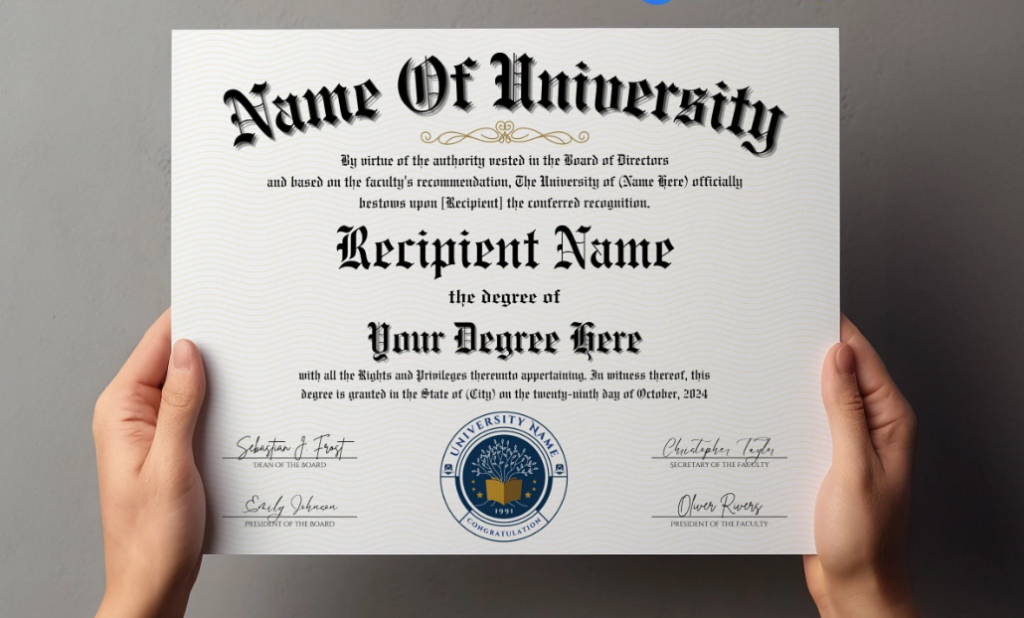The Different Types of Degrees in College

26
FEB
The Different Types of Degrees in College
The four main types of degrees in college are associate, bachelor’s, master’s, and doctoral degrees. These degrees represent different levels of higher education, with each subsequent degree building upon the knowledge and skills acquired in the previous level.
In this article, you will discover the differences between these four types of degrees.
Associate Degrees
Associate degrees are two-year post-secondary educational programs that serve as an entry point into higher education. Typically awarded by community colleges, junior colleges, and technical schools, associate degrees provide foundational knowledge in a specific field or serve as a stepping stone toward a bachelor’s degree. They are designed to be more affordable and accessible than four-year degree programs, making them an appealing choice for students looking to enter the workforce quickly or those seeking to explore a subject area before committing to a longer degree program.
There are two primary types of associate degrees: the Associate of Arts (AA) and the Associate of Science (AS). The AA degree typically focuses on liberal arts and humanities, offering a broad range of general education courses such as English, history, and social sciences. On the other hand, the AS degree emphasizes math, science, and technology, providing students with the technical skills and knowledge needed for careers in these fields. Both degrees can be used as a foundation for further education, as they usually fulfill the general education requirements for a bachelor’s degree.
In addition to the AA and AS degrees, some institutions also offer Associate of Applied Science (AAS) degrees and other specialized associate degrees tailored to specific industries or professions. These degrees are designed to prepare students for immediate entry into the workforce, offering a more career-focused curriculum and practical, hands-on training in fields such as healthcare, information technology, and hospitality.
One of the main advantages of an associate degree is its cost-effectiveness compared to a bachelor’s degree. Since these programs typically take only two years to complete, they tend to be more affordable and have lower tuition rates. Furthermore, community colleges and technical schools often have smaller class sizes and flexible scheduling options, making it easier for students to balance their education with work or family commitments.
Another benefit of earning an associate degree is the opportunity to enter the workforce sooner. Graduates can pursue entry-level positions in their chosen field, gaining valuable work experience and income while potentially continuing their education on a part-time basis. For those who wish to transfer to a four-year institution, many colleges and universities have articulation agreements in place, which can streamline the process of transferring credits and applying for admission.
In summary, associate degrees offer a cost-effective and accessible entry point into higher education, providing students with the foundational knowledge and skills needed to pursue a bachelor’s degree or enter the workforce directly. With various degree types and fields of study available, they cater to a wide range of interests and career goals.
Bachelor’s Degrees
Bachelor’s degrees are four-year undergraduate programs that provide a comprehensive education in a specific field of study. These degrees are awarded by colleges and universities and are designed to offer a well-rounded curriculum, which includes a combination of general education courses, major-specific courses, and elective classes. Bachelor’s degrees prepare students for a broad range of career options, as well as lay the groundwork for pursuing advanced degrees such as master’s and doctoral programs.
There are two primary types of bachelor’s degrees: the Bachelor of Arts (BA) and the Bachelor of Science (BS). The BA degree typically focuses on liberal arts, humanities, and social sciences, promoting critical thinking, communication, and problem-solving skills through a diverse range of subjects. In contrast, the BS degree emphasizes math, science, and technical disciplines, fostering analytical and quantitative skills through rigorous coursework and practical application. Both degree types allow students to specialize in a major, which is a concentrated area of study that aligns with their academic interests and career aspirations. Some institutions also offer specialized bachelor’s degrees, such as the Bachelor of Fine Arts (BFA) or the Bachelor of Engineering (BEng), tailored to specific industries or professions.
Master’s Degrees
Master’s degrees are advanced postgraduate programs that typically require one to three years of study beyond a bachelor’s degree. These degrees offer specialized knowledge and skills in a particular field, enabling students to delve deeper into their chosen area of expertise. Master’s programs are designed for those seeking to enhance their career prospects, shift to a new field, or pursue further academic research. They are offered by colleges and universities, with some institutions requiring the completion of a thesis or a capstone project as part of the degree requirements.
There are two primary types of master’s degrees: the Master of Arts (MA) and the Master of Science (MS). The MA degree usually focuses on humanities, social sciences, and arts, allowing students to refine their critical thinking and analytical skills. In contrast, the MS degree emphasizes science, technology, engineering, and mathematics (STEM) disciplines, providing students with advanced technical expertise and practical skills. In addition to these, there are numerous specialized and professional master’s degrees, such as the Master of Business Administration (MBA), Master of Social Work (MSW), and Master of Education (MEd), designed to cater to the unique needs of various industries and professions. These programs often combine academic coursework with practical experiences, internships, or networking opportunities, facilitating the transition from education to the workforce.
Doctoral Degrees
Doctoral degrees represent the highest level of academic achievement in a given field and are typically pursued after completing a master’s degree. These advanced postgraduate programs require several years of intensive research and study, usually ranging from four to eight years, depending on the discipline and individual progress. Doctoral degrees are awarded by universities and research institutions, and are designed for students who aim to become experts in their field, contribute new knowledge through original research, and potentially pursue careers in academia, research, or specialized professional roles.
The most common type of doctoral degree is the Doctor of Philosophy (PhD), which is available in a wide variety of disciplines, including humanities, social sciences, natural sciences, and engineering. PhD programs generally involve extensive coursework, followed by the development and completion of a dissertation – a significant piece of original research that makes a novel contribution to the field. In addition to the PhD, there are various professional doctorates, such as the Doctor of Education (EdD), Doctor of Psychology (PsyD), and Doctor of Business Administration (DBA), which focus on the practical application of knowledge and skills in specific industries or professions. These degrees often require a combination of advanced coursework, fieldwork, internships, or practical projects, rather than a traditional dissertation. The goal of professional doctorates is to prepare graduates for leadership roles and specialized practice within their chosen profession.




